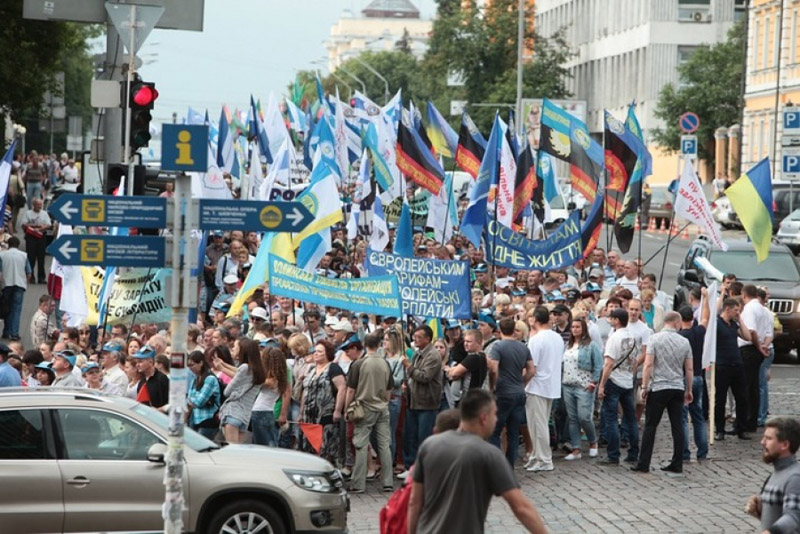8 July, 2016Over 50,000 trade union members and workers from all over Ukraine rallied in Kiev on 6 July protesting against the sharp increase in utility tariffs.
Under the banner “European wages to pay European prices!”, marchers picketed the parliament and government buildings to protest against the double tariff increase for hot water, gas and heating, and an expected tariff increase for electricity and cold water. They also demanded an end to austerity and an increase in wages and pensions.
IndustriALL Global Union affiliates in Ukraine that joined the rally are concerned that the majority of Ukrainians will not be able to afford this rise in tariffs. The unions are demanding an increase in the minimum wage to at least 3 000 Hryvnia (US$120) to bring it in line with the living wage. They believe the average wage should be around 8000-10000 Hryvnia (US$320-400). The trade unions also insist that employers increase the workers’ wages by at least 15 per cent as of 1 August through savings in a two-fold reduction in the level of social contribution.
Trade union demands signed by over two million people from all regions of Ukraine were handed to the parliament and government of Ukraine.
Mikhailo Volynets, the chairman of IndustriALL affiliate, the Independent Trade Union of Coal Miners of Ukraine, called the rally the most powerful protest action that took place in Kiev in the past two years. People have had enough of poverty. He also drew attention to the fact that a significant number of the protesters were women, and reminded demonstrators that a few years ago it was women who blocked mine operations, not allowing their men to go down, to demand that the administration pay wage arrears.
"Once again, miners are not getting paid. They have been forced to go on hunger strike, such as the miners at Selidovugol mines, who have been on hunger strike since 4 July demanding the end to wage arrears,” said Volynets.
Volynets added that that day’s action was a warning to the government, and there would be bigger protests if the trade unions’ requirements were ignored.



